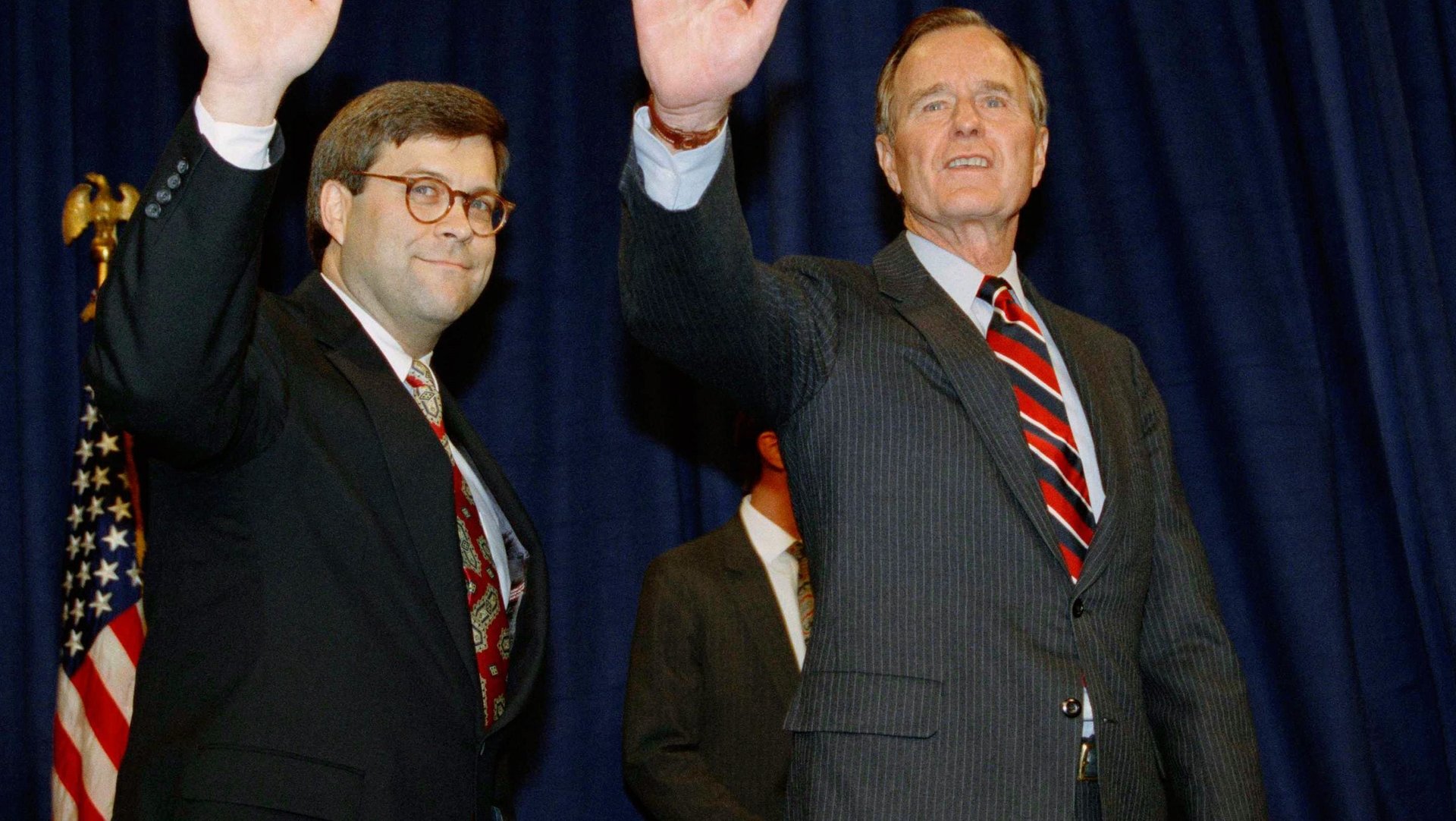Trump nominee William Barr pushed for the death penalty to “send a message to drug dealers”
William P. Barr, the former attorney general under George H. W. Bush, could be returning to his old job, after Donald Trump nominated him today (Dec. 7) to fill the position held by Jeff Sessions.


William P. Barr, the former attorney general under George H. W. Bush, could be returning to his old job, after Donald Trump nominated him today (Dec. 7) to fill the position held by Jeff Sessions.
Barr, who served as attorney general from 1991 until 1993, was a staunch proponent of the death penalty, and pushed hard to get a Bush-backed bill that would have expanded the types of crime that could punished by execution.
What Barr, who has been a Verizon employee and a private attorney since he left Bush’s administration, believes now about the death penalty isn’t clear yet. But he’s sure to be questioned about it during the Senate confirmation process, which is expected to start in January.
Sending a message to drug dealers
Barr’s rationale for stricter death penalty laws was that they would reduce crime, including drug trafficking, as he explained in a 1991 op-ed in The New York Times:
We need a death penalty to deter and punish the most heinous Federal crimes such as terrorist killings. That penalty would send a message to drug dealers and gangs.
The need for a death penalty was highlighted by the recent hostage crisis at the Federal prison at Talladega, Ala. Detainees, faced with deportation to Cuba, seized control of the prison and held 10 Federal officers hostage. The prisoners threatened to kill them unless the Justice Department granted their demands to remain in the U.S. Fortunately, no one was killed, and the prisoners were deported. If the crime bill had been law, the prisoners would have faced the death penalty for killing a hostage, increasing the chances our personnel would be recovered safely.
He also argued that death row inmates’ ability to challenge their sentences should be limited, to avoid cases dragging on for years. “This lack of finality devastates the criminal justice system. It diminishes the deterrent effect of state criminal laws, saps state prosecutorial resources and continually reopens the wounds of victims and survivors,” he wrote in the op-ed.
The exact Bush bill that Barr was backing never passed. But in a sign of attitudes at the time, Democratic president Bill Clinton signed into law a massive federal crime bill just three years later that included sixty new death penalty offenses, including “terrorism, murder of a federal law enforcement officer, civil rights-related murders, drive-by shootings resulting in death, the use of weapons of mass destruction resulting in death, and carjackings resulting in death,” Politico reported.
Shifting views on the death penalty
In the years since, however, the use of the death penalty in the US has plummeted. The exoneration of dozens of inmates on death row, thanks in part to the increased use of DNA in appeals and investigations, has led to a reexamination of the practice. Overwhelming evidence of racial prejudice in death penalty trials and sentencing has led three states to abolish the death penalty outright. Barr and Bush’s own speechwriter, Mary Kate Cary, denounced it in a 2011 op-ed in USNews titled “The Conservative Case Against the Death Penalty.”
Every day, it seems the newspapers have another story about a wrongfully convicted person being released, often after serving decades in jail. Just last week, Virginia Gov. Bob McDonnell released a man from prison who had served 27 years for rapes he did not commit. DNA testing cleared him.
As I said, it’s hard to turn your back on innocent people whose lives have been destroyed.
It’s becoming harder to justify the death penalty in the face of evidence that our system is flawed.
If Barr is confirmed, the issue of execution as a deterrent to drug-related crimes is sure to resurface. Barr’s daughter Mary Daly was appointed by Trump as the top Department of Justice official on opioid crimes this year. As president, Trump has advocated for the death penalty for drug traffickers who caused the crisis, but it is unclear whether he means the pharmaceutical executives who pushed prescription opioids, or the people distributing illegal opioids.